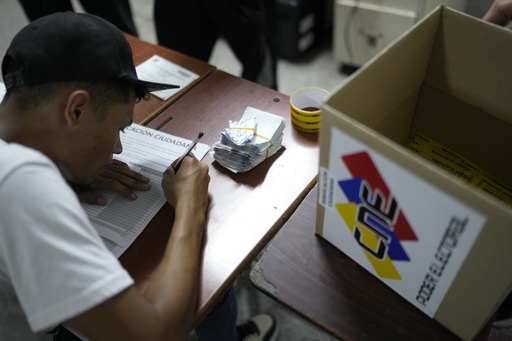CARACAS, Venezuela – The aftermath of Venezuela’s recent presidential election has led to tensions as both President Nicolás Maduro and the main opposition coalition claim victory. While the national electoral authority declared Maduro as the winner, the opposition, represented by Edmundo González, insists they have evidence proving otherwise.
With over 30,000 voting machines in place for the election, the opposition had the right to have representatives at all voting centers, as mandated by law. However, not all representatives were allowed in on voting day, and some were even removed before polls closed, raising concerns about transparency.
There is a call for the release of the tally sheets produced by Venezuela’s electronic voting machines after the polls close. These sheets show the votes each candidate received and can help resolve the dispute between the government and opposition. Despite calls for transparency, the National Electoral Council has not made these sheets public.
The focus has shifted to the tally sheets, with the government’s counts being challenged by the opposition parties. The electronic machines provide voters with a paper receipt showing their chosen candidate, which is then deposited in ballot boxes. Copies of the tally sheets are distributed to party representatives and kept by electoral authorities.
The National Electoral Council traditionally posts vote counts for every machine on its website but has never shared images of the tally sheets. According to the council’s president Elvis Amoroso, Maduro received over 5.1 million votes, while González got more than 4.4 million votes based on a partial review of the tally sheets.
Opposition leader María Corina Machado, on the other hand, claimed that González received over 6.2 million votes, with Maduro getting around 2.7 million votes based on their review of the tally sheets. However, the opposition’s website providing access to these images has been down since Monday.
The lack of transparency regarding the release of the tally sheets has fueled skepticism and demands for accountability from the opposition, electoral experts, and international observers. The opposition has taken steps to make the tally sheets accessible through a searchable website, aiming to provide transparency and share information with the international community.


